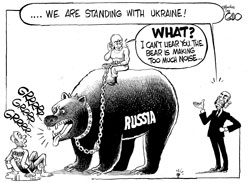The University’s Polling Institute sponsored What Happened? Assessing the 2018 Midterm Elections, an event analyzing the election results, last Thursday, Nov. 8.
The event was hosted in the Wilson Hall Auditorium, and was open to the public. Several students, professors and faculty, and members from the surrounding community gathered to listen to Patrick Murray, Director of the University’s Polling Institute, and Clare Malone, a senior political writer and panelist at FiveThirtyEight, share their takeaways and analysis of the first national election during President Donald Trump’s presidency.
“We had high youth turnout. Now, again, it trailed turnout among older voters but it was still higher than it had ever been,” said Murray.
An estimated 113 million voters turned out Tuesday. A new record for a non-presidential year and 30 million more than 2014. “The fact that over a 110 million people came out to vote suggests that they might be sick of politics but they know what matters,” he continued.
Murray and Malone also discussed how Republicans failed to win state-wide races for national office in New Jersey, but can win statewide for governor and vice versa in other states such as Tennessee.
“We are seeing people becoming entrenched in their political views and that determining, you know, voting straight down the ticket. Ohio being the exception. A Democratic senator winning and a Republican winning the governorship,” Malone said.
She continued and said that Democrats have, what she calls, “an efficiency problem of their votes,” noting that many Democratic voters are clustered in cities. “They’re not in parts of states that will help them flip elections or flip seats,” said Malone.
Malone and Murray say that has emerged among voters with a college education. “Those white, college-educated women are splitting with women who don’t have a college education, who vote for Trump, and white, college-educated women are increasingly going over to the side of Democrats,” Malone noted.
One of the questions from the audience asked about polling, and how several pollsters got the results wrong in 2016, and what’s changed between that election and the 2018 midterms.
“There was a real divide voting Democrat and Republican depending on whether you had a college degree. We never saw that before,” said Murray. “If the polling was off because of a proportion of folks who didn’t have a college degree that contributed to the error in 2016. So, we’ve all made corrections for that one.”
The discussion then turned to the 2020 elections and the “successful failure” of Beto O’Rourke. He failed to halt Republican incumbent Senator Ted Cruz’s re-election but succeeded in garnering a lot of money, votes, and national attention.
“In some ways, Tuesday night was a best-case scenario for Beto O’Rourke. I think that O’Rourke has certain advantages that Democrats might start to look at and say, ‘Oh! Okay, here’s a progressive white guy who won’t alienate voters, who in 2016 might have voted for Trump because of racially-charged feelings about Obama,’” said Malone, adding that she believes that O’Rourke will likely run for president in 2020.
For now, thoughts on what the Democrat-controlled House should and will do with a president who has warned the new majority about investigating him.
“I think they will at least have a front of saying, ‘We’re here to cooperate but we’re also here to investigate.’ Because I think they’re walking a thin line,” said Malone.
Murray suggested that the best strategy for the Democrats to take in their new majority is to assemble a comprehensive infrastructure package in the House and pass it as their first order of business He said that sends the message: “‘This is why you sent us here. This is the most important. Yeah, we’re going to keep a check on the president. We’re going to do some investigation. But, that really isn’t our priority.’”



